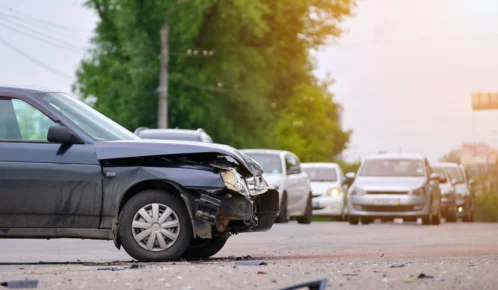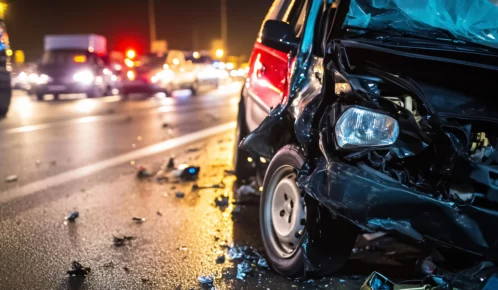In this guide, you will learn all about the burden of proof in workers’ compensation.
Table of Contents
Workers’ Compensation Burden of Proof
When filing a workers’ compensation claim in Illinois, the injured worker is required to prove that he or she is eligible for benefits. Although this can be extremely burdensome for individuals who are already suffering from injury, especially in more complicated cases, the system is structured to help prevent fraudulent workers’ comp claims. A qualified Chicago workers comp attorney can help injured workers establish eligibility in compliance with current workers’ compensation laws.
(Article continues after the infographic)

No-Fault and Workers’ Compensation
Thankfully, workers’ comp is designed to be a “no-fault” system. In other words, an injured worker is not required to prove that his employer is at fault for causing the injury in question, he simply has to establish that he meets the requirements described in the Illinois Workers’ Compensation Act to be eligible for compensation. In order to establish eligibility, an injured worker typically needs to prove the following:
- Jurisdiction: An injured worker must be able to prove that the employer was engaged in business in the state of Illinois at the time of the injury in order to establish that they are subject to the Illinois workers’ compensation laws.
- Occurrence of the Injury: The injury must have occurred while the individual was performing work or performing actions required by the employer. While this may seem pretty cut and dry if the injury happened at the actual workplace, injuries that occurred during other company business may be more difficult to claim. Seeking the assistance of an experienced Chicago workers comp attorney is recommended.
- Employment: The worker must be able to establish that he had an actual employee relationship with the employer when the accident occurred. Individuals who work from home or use their own tools or other equipment to perform their jobs may find this to be challenging in some cases.
- Cause of the Injury: A worker must be able to prove that the injury was caused by the accident and not a result of a pre-existing condition or other incident.
- Medical Expenses: A worker has to show that he has incurred medical expenses as a result of the injury. When a worker is injured on the job, it is essential that he seeks adequate medical treatment promptly.
- Notification: An injured worker is required to report the employer of the accident in accordance with the deadline stated in the Illinois Worker’s Compensation Act.
- Effects on the Worker’s Abilities: A worker must be able to prove that his level of functioning is impaired as a result of the injury. In some situations, the worker may still be able to work while receiving workers’ compensation benefits.
Injured workers should contact a Chicago workers comp attorney for assistance in establishing proof of eligibility for workers’ compensation benefits in Illinois.
Burden of Proof in a Workers’ Compensation Case
In order to meet the requirements described in the Illinois Workers’ Compensation Act, it is vital that injured workers provide documentation and other evidence to support the workers’ comp claim. Some types of evidence that can be extremely effective include:
- Medical Records: An injured worker’s medical records are an essential part of the workers’ compensation claim. Medical records not only prove the extent of any injuries that were suffered, but provide documentation of treatments that are required for recovery as well.
- Records of Employment: In order to prove the employer-employee relationship that was in place at the time of the injury, employment records like paystubs, performance reviews and even written offers of employment can be very effective.
- Accident Reports: Copies of accident or incident reports can be vital to the injured worker’s case. Not only can these types of reports provide important details about the injury, they can serve as proof that the employer was notified of the occurrence as well.
- Witnesses: The testimony of any individuals who witnessed the accident can sometimes help prove that the incident could have caused the injuries in question. Additionally, statements and/ or testimonies from experts like doctors that did not provide direct treatment to the injured worker or accident reconstruction experts can help support the claim.
An experienced Chicago workers’ comp attorney can help injured workers determine any additional documentation or evidence that might affect the case. In some situations, the evidence can be used to help settle the claim. When settlement is not successful, the documentation and/ or witness testimonies can support a formal claim with the Illinois Workers’ Compensation Commission.
When faced with the burden of proof in a workers’ compensation case, many injured workers become intimidated and often back down, leaving the benefits that they deserve behind. A seasoned Chicago workers comp attorney can help injured workers become familiar with the Illinois workers’ compensation laws that are designed to protect their rights and get them the compensation they are entitled to as a result of an injury or illness sustained on the job.
Don’t miss these workers’ comp guides from Ankin Law:



